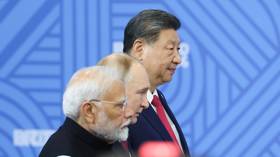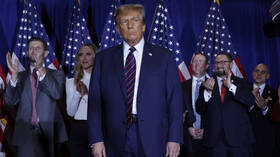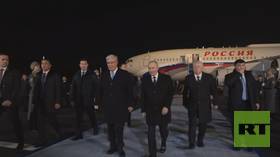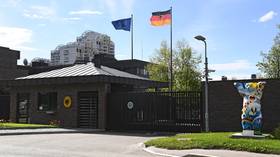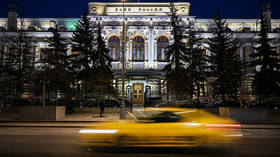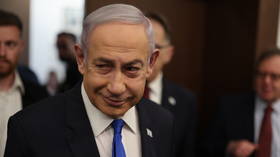Dugin praises Modi’s war on ‘colonial mindset’

India plays a “crucial” role in the new global architecture and balance of power, Russian political scientist and philosopher Aleksandr Dugin has said in an interview with RT. This includes creating a “decolonized” mindset and shifting from “Western-controlled narratives,” he added.
Speaking on the sidelines of an event hosted by Russia House in New Delhi, Dugin noted that the main challenge in creating a multipolar world is a “philosophical one – restoring our metaphysical identity.” The political scientist recalled Prime Minister Narendra Modi’s call for Indians to “remove any trace of colonial mindset” as the country, which gained independence from British colonial rule in 1947, progresses toward a new vision and identity. India, he noted, now identifies itself as Bharat – a name that reflects a departure from its colonial legacy.
“In no part of our existence, not even in the deepest corners of our minds or habits, should there be any ounce of slavery. It should be nipped in the bud,” Modi stated in 2022 during an address on India’s 76th Independence Day. “We have to liberate ourselves from the slavery mindset, which is visible in innumerable things within and around us.”
Russian Philosopher Echoes PM Modi on Decolonisation of the MindThe most important factor in creating a multipolar world is Indian society liberating itself entirely from western influence, @Agdchan told RT at the Russian House, Delhi. pic.twitter.com/MNPB1Ns1bL
— RT_India (@RT_India_news) November 20, 2024
The Modi government has been implementing regulatory, economic, and social reforms driven by the idea of establishing a distinct identity for “New India,” which is transforming into a developed nation powered by technological innovations.
“Colonization is not just political or administrative control; it is also control of mentality,” Dugin stated. “All civilizations should decolonize their minds. In Russia, we too are working on this because our education and humanitarian sciences are totally controlled by Western narratives.”
“We need to find a way out of this state of colonization of minds to liberate ourselves and help liberate each other by setting an example. We need to stay closer to one another, creating a just, democratic, balanced, and equal world – a new world order based precisely on multipolarity,” the philosopher added.
Dugin argued that India, Russia, and China are examples of civilizational states that unite different peoples, cultures, and religions. He asserted that these three countries were instrumental in forming the foundational structure of the BRICS group, which challenges the Western-dominated world order. He emphasized that multipolarity should be based on dialogue among civilizational states, rather than nation-states central to the Westphalian model, and that India’s role in this process is “crucial.”
“India could choose a path to include the West in a concert of civilizational states to create a new architecture of the world and a new balance of power,” Dugin suggested, adding that New Delhi could also play a major role in avoiding a “suicidal conflict” between Russia and the US. Similarly, Moscow could broker conflicts between India and China.
Since the escalation of the Ukraine conflict, New Delhi has maintained strong ties with both Moscow, its traditional partner, and Washington, despite unprecedented pressure from the West to downgrade its relations with Russia. Indian officials argue that the country’s foreign policy is driven by the interests of a nation experiencing rapid economic growth and serving a population of 1.4 billion. Modi has insisted that a resolution to the Ukraine conflict cannot be achieved on the battlefield and has called for solutions through “diplomacy and dialogue.”
